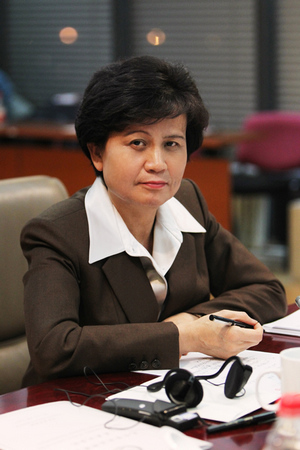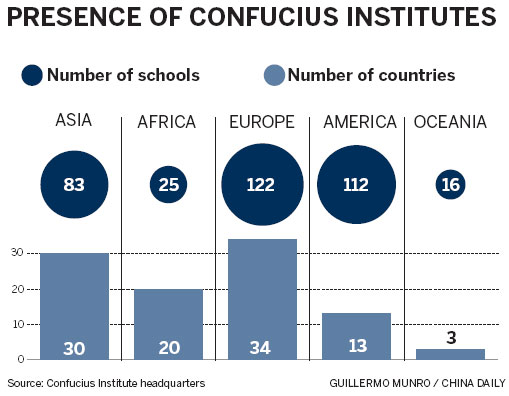Making a world of difference
Updated: 2011-12-14 08:54
By Chen Jia (China Daily)
|
|||||||||
BEIJING - Chinese culture is increasingly making its presence felt internationally, in the latest sign of China's growing global clout.
More than 400 institutions from 76 countries are looking for ways to cooperate with the Confucius Institute, Xu Lin, the institute's chief executive, told China Daily on Tuesday.
|
 Xu Lin is the chief executive of the Confucius Institute. |
The institute is a nonprofit organization aiming to promote the Chinese language and culture. Its global presence is viewed as a barometer of China's "soft power".
The institute hopes to establish branches with foreign partners that are located in well-populated areas, have a proven record of influence in their locality and have some experience in teaching Chinese.
"We prefer to set up outlets in countries where there is a tradition of teaching languages," Xu said. Demand for Chinese teachers who can also speak other languages is increasing but "we cannot find many Chinese teachers who can also speak Persian or Arabic, and this slows down our growth".
More than 2,000 delegates from 105 countries are participating in the sixth conference of Confucius Institutes in Beijing, which will end on Wednesday.
More than 350 Confucius Institutes and 500 Confucius Classrooms have been founded in 105 countries and regions, according to the institute's headquarters.
The cost of every Confucius Institute is equally shared by Chinese and overseas partners. But after three years the partner is meant to stand on their own two feet.
But "some Confucius Institutes cannot do that, and we plan to continue to finance them after three years", said Xu Lingling, deputy director of the International Cooperation Department at the North China Electric Power University.
Her university has cooperated with the Suez Canal University in Egypt for three years and entered a partnership with Western Kentucky University in the US in 2011.
Xu Lin said on Tuesday that the institute hopes to attract "international publishers to buy our copyright and promote our products".
She also promised to continue to help Chinese teachers working overseas, especially in less-developed countries.
The institute has had to tackle a shortage of teachers.
"I was the only teacher in our university who applied to teach at the Confucius Institute in Yaounde, Cameroon, in 2007," Zhang Xiaozhen, a teacher at Zhejiang Normal University, told China Daily.
"At first I was homesick, and poor telecom services prevented me from talking with my family very often," she recalled.
"I had to use candles because of frequent blackouts and eat a lot of fruit when there was no water," she said.
But Zhang said that despite the loneliness she felt fulfilled and she stayed for three years.
Teachers also face other drawbacks, even in far more developed regions.
"All Chinese teachers in Kentucky are working with temporary teaching certificates," said Pan Weiping, director of the Confucius Institute in Kentucky.
Xu Lin said that headquarters will support and cooperate with their American partners to grant full teaching certificates in 2012.
The US is one of the key growth areas as Chinese culture becomes ever more popular.
"Though Spanish and French are popular second languages in many American schools, my 14-year-old daughter has shown a keen interest in Chinese culture," said Amy Bingham DeCesare, who works as a broadcast coordinator at Western Kentucky University.
 |











